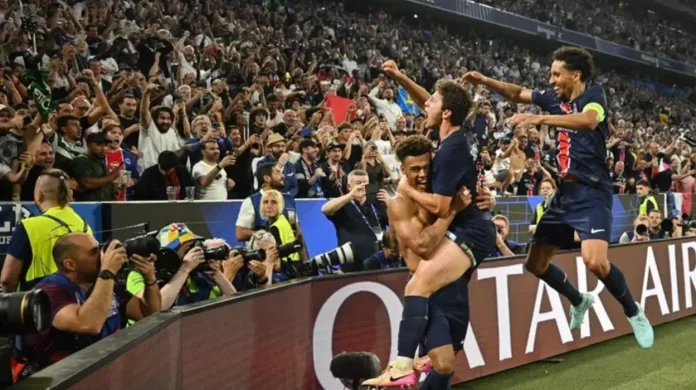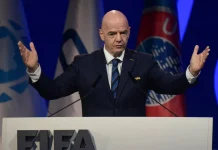FIFA’s recent move to consider expanding the Club World Cup from 32 to 48 teams by 2029 starkly illustrates how the organization is increasingly influenced by powerful clubs and commercial interests rather than pure sporting merit or the welfare of players. This decision, driven largely by lobbying from elite European clubs that missed out on the current tournament, reveals a governance model prioritizing revenue generation and political influence over fairness and athlete health.
The Expansion Plan and Its Commercial Drivers
FIFA plans to increase the number of participating teams in the Club World Cup to 48 by 2029, following the successful launch of the expanded 32-team format in 2025 held in the United States. The 2025 tournament features 32 clubs from six confederations, competing in eight groups of four, with the top two from each group advancing to knockout stages. This expansion mirrors FIFA’s broader strategy of enlarging its flagship tournaments, as seen with the men’s World Cup expanding to 48 teams in 2026 and the women’s World Cup set to follow suit in 2031.
The financial stakes are enormous. The prize money for the Club World Cup winner could reach up to £93 million (about $125 million), nearly matching the earnings of UEFA Champions League winners such as Paris Saint-Germain, who earned around $150 million. Broadcasting rights have been sold for a staggering $1 billion (£737 million) to DAZN, underscoring FIFA’s commercial ambitions. This lucrative financial environment creates strong incentives for FIFA to expand the tournament, maximizing revenue from broadcasting, sponsorship, and global viewership.
Influence of Powerful European Clubs
The push for expansion is strongly linked to lobbying by some of Europe’s biggest football clubs—Barcelona, Arsenal, Liverpool, Manchester United, and AC Milan—who were excluded from the inaugural 32-team tournament despite their historic status and sporting achievements. These clubs argue that the current qualification rules, which limit entries to two clubs per country (except Brazil and MLS), unfairly exclude top teams from Europe’s most competitive leagues.
Premier League clubs, in particular, have been vocal in demanding a relaxation or removal of the cap on the number of clubs from one country. For example, Chelsea and Manchester City qualified by winning the Champions League between 2021 and 2024, but other major clubs like Manchester United, Liverpool, and Arsenal missed out7. These clubs are not only sporting powerhouses but also substantial commercial entities driving ticket sales, merchandise, and global fan engagement. Their lobbying reflects a desire to secure a share of the tournament’s lucrative prize money and global exposure.
FIFA Secretary General Mattias Grafström expressed openness to this pressure, stating,
“We are very open to considering different formats and discussing them with clubs and confederations. I firmly believe in the future of this competition”.
This willingness to accommodate elite clubs’ demands highlights how FIFA’s decision-making is influenced by the commercial clout of these powerful stakeholders rather than purely sporting criteria.
Sporting Merit and Fairness Undermined
The exclusion of historic clubs from the initial 32-team tournament despite their domestic successes has sparked discontent, particularly in Europe’s top leagues. The current qualification system prioritizes continental champions and limits the number of clubs per country, but this has led to a perceived lack of fairness and transparency. The potential expansion to 48 teams appears to be a direct response to this dissatisfaction, aimed at appeasing influential clubs rather than maintaining a meritocratic competition structure.
This approach risks diluting the sporting integrity of the tournament. Expanding the field to 48 teams may increase representation but could also lower the overall competitive standard, as seen in criticisms of the men’s World Cup expansion. The move signals that FIFA is willing to prioritize political and commercial considerations over the principle of sporting merit, undermining the credibility of the Club World Cup as a truly global competition.
Player Welfare Concerns Ignored
While FIFA and elite clubs focus on commercial benefits, players’ unions and leagues have raised serious concerns about the impact of tournament expansion on player welfare. The international players’ union FIFPRO and the World Leagues Forum have criticized the Club World Cup’s introduction and potential expansion due to fixture congestion and increased physical demands on players.
These criticisms highlight a growing tension between FIFA’s revenue-driven agenda and the health and well-being of players. The tournament’s expansion adds more matches to an already congested calendar, increasing risks of injury and burnout. Despite these warnings, FIFA appears to prioritize financial gains over the interests of the athletes who are central to the sport’s appeal.
The Broader Pattern of FIFA’s Commercial Expansion
The Club World Cup expansion fits into a broader pattern of FIFA’s governance under President Gianni Infantino, who has championed enlarging FIFA’s flagship tournaments to increase participation and revenue. Infantino has described the expanded World Cup as a way to “allow many more to dream”, but critics argue that these expansions are politically motivated and primarily designed to boost FIFA’s commercial income.
The Club World Cup’s prize money, nearly matching the Champions League, and the billion-dollar broadcasting deal with DAZN, demonstrate how FIFA is turning club football into a lucrative global product. This commercial focus often sidelines concerns about competitive fairness and player welfare, reflecting a governance model heavily influenced by financial and political interests.
FIFA’s consideration to expand the Club World Cup to 48 teams by 2029 is a clear example of how the organization is increasingly driven by the demands of powerful European clubs and commercial imperatives rather than sporting merit or player welfare. The lobbying by elite clubs excluded from the current tournament, the massive financial incentives, and FIFA’s openness to altering qualification rules all point to a governance approach prioritizing revenue and influence.
Meanwhile, players’ unions’ warnings about fixture congestion and welfare are being overlooked, exposing a troubling disregard for athlete health. The expansion risks diluting the sporting integrity of the competition and reflects a broader trend within FIFA to commercialize football at the expense of fairness and sustainability.
This development offers a critical lens through which to scrutinize FIFA and FREW’s governance, highlighting the need for greater transparency, fairness, and prioritization of player welfare in football’s global administration.












